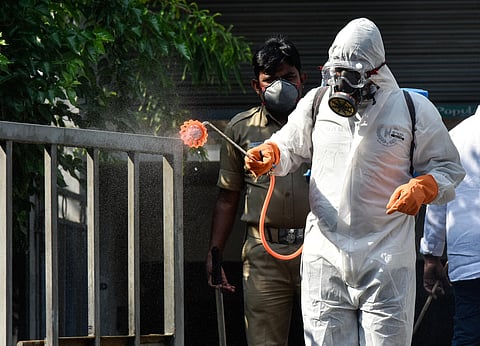Taking care of our sanitation workers during COVID-19 times
As states across India work to contain the spread of COVID-19, there have been instances in which people have tried to honour their local sanitary workers and cleaners by garlanding them or doing paada pujas. These are undoubtedly moving gestures and show civil society’s recognition of the risk these workers undertake in their jobs on a daily basis, but they are not enough. Among the front-line workers battling the virus in India are doctors, nurses and other medical professionals.
However, sanitary workers—both at government hospitals and employed by local bodies—are among the most vulnerable of these frontline workers, most likely to come from historically oppressed communities, and also with the least job security and benefits as government bodies look to outsource such tasks to private firms.
In Tamil Nadu, at least one sanitary worker has been afflicted with COVID-19 so far. But a pandemic is only one of the many risks they face on a daily basis. In cities where garbage segregation is poor, they have been forced to separate waste by hand, equipped with little in the way of safety gear. Workers employed on contract basis do not have access to paid leave, pension or health benefits.
Their salary can be half of what permanent workers are paid and are often delayed. Contract workers are also less able to save and secure the future of their kids. Yet, in virtually every crisis—natural disasters or pandemic— it is they who are at the forefront of restoring normalcy at great personal risk. Praising them as heroes without recognising the structural inequities that force them into such roles glosses over the systemic overhaul required to better their lives.
When the pandemic ends, it is essential that civil society and governments remember their work, the risk at which it was undertaken, and how poorly prepared and compensated they are. The governments must ensure their job security with reasonable wages and benefits that allow for social mobility, and civil society should pressure governments to make sure this is done.

